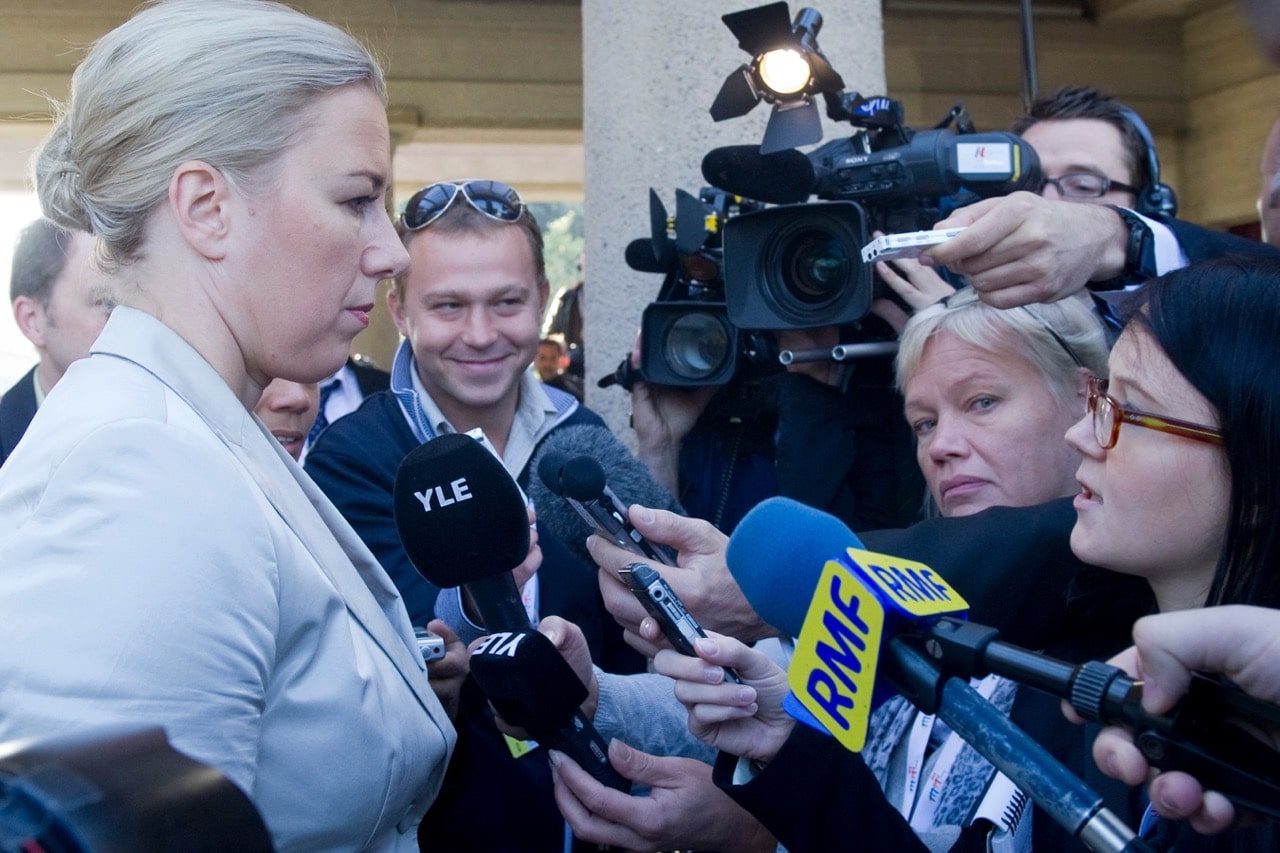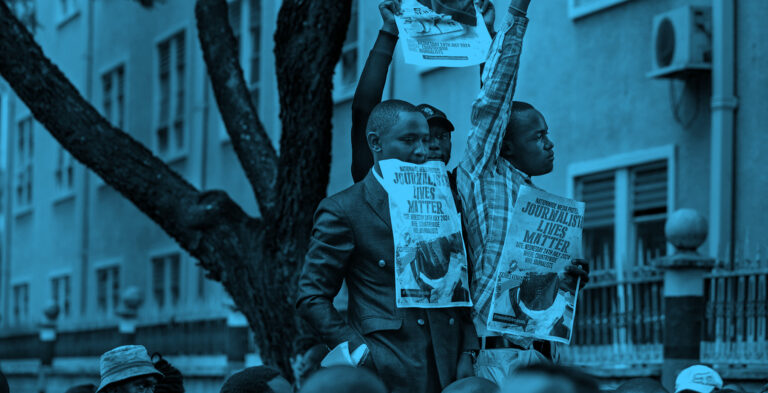A new survey shows IFJ affiliates at the forefront of a drive to tackle gender-based violence and harassment at work.
This statement was originally published on ifj.org on 7 March 2018.
IFJ affiliates are at the forefront of a drive to tackle gender-based violence and harassment at work the results of a major new survey reveal.
In November the IFJ published more realistic statistics showing the true and sordid level of violence and harassment faced by women journalists across the world. Today’s follow-up survey reveals that dozens of journalists’ unions and associations are putting the issue at the heart of their work in a bid to tackle these human rights violations and abuses of power endemic in the profession.
But the survey of more than 50 unions and associations in all continents also revealed that a lack of adequate laws, workplace collective agreements, monitoring mechanisms, reporting procedures and a failure by employers to enforce existing policies, as well as a lack of support and care for those coming forward were at the root of an epidemic of violence and harassment in media.
In only around a quarter (27.7%) of countries were there collective agreements for journalists covering gender-based violence.
One respondent said that to avoid sexist abuse in the newsroom “management tells me to put headphones on and watch a movie”.
However, two-thirds of unions now have launched active campaigns and work targeting gender-based violence.
In Mozambique the National Journalists’ Union helped to win a new law against gender-based violence (GBV), while in Nepal journalists’ unions and associations worked with mass media to run a campaign aimed at publishing and broadcasting stories exposing violence against women.
In Mongolia the journalists’ confederation had carried out research and organized meetings to raise awareness about the issue and women’s rights. Unions in Ecuador, Spain and the Democratic Republic of Congo were among many who had organized training for journalists as part of an awareness-raising effort.
In Finland the union worked to develop payroll systems that support equal pay and ensure the equal deployment of male and female journalists among the union’s representatives.
Many unions – among them those in South Africa, Indonesia, France, Spain, Thailand – had actively represented members coping with sexual harassment or GBV.
Others had created special women’s groups or sections to enable more discussion and the development of new policies. In Turkey, Benin, India and Nigeria active women’s organisations were helping to raise issues related to discrimination and GBV.
In Canada, unions had taken practical action lobbying around domestic violence issues but also fundraising for shelters for women and raising public awareness of the issue.
In Belgium, the association launched a study to analyse the way media reported gender based violence as well as recommendations to improve ethical reporting on this topic.
But the results also show, that despite the excellent work carried out by dozens of unions, there is still work to be done to ensure union workplaces and meetings meet the gold standard.
More than half of unions have a clear policy on gender-based violence covering staff and union activities – but 45% of respondents said their organisation did not.
Of those who did have a policy 86% covered sexual harassment, and more than three quarters covered issues such as physical abuse and sexual violence but only around half covered economic and financial abuse and just 58% addressed issues of sexist abuse, including online abuse.
Working with its affiliates the IFJ will prioritise the issue of tackling GBV in the world of work in the coming period. Later this month IFJ activists will be among those lobbying the United Nations Commission on the Status of Women in support of a new ILO Convention to tackle violence in the world of work.
Using the results of the survey the IFJ’s Gender Council will also draw up a new programme of work at its forthcoming mid-term conference in Spain to respond to the needs highlighted by our unions.
The demands from affiliates include more IFJ support for:
– Helping expose companies who fail to enforce workplace policies/laws on GBV
– Lobby against gagging clauses and forced mediation practices that silence women on abuse and protect businesses and perpetrators over survivors
– Raising awareness of the scale of and individual cases of GBV
– Provide more training – including on line – for journalists covering gender issues
– Undertake rights awareness training for women union members
– Develop best practice guidelines and publish manuals/websites for preventing and addressing GBV
– Campaign for international agreements covering GBV
– Help unions secure collective agreements dealing with issues arising from GBV
– Launch specific campaigns targeted at individual countries/companies
– Organise meetings, conferences to enable unions to share experience and plan strategies to tackle GBV.
IFJ Gender Council co-chair Mindy Ran said: “The IFJ’s two surveys show the completely unacceptable scale of violence and abuse faced by women journalists around the world and the failure of government and employers to deal with these appalling human rights abuses.
“But they also show that journalists’ unions and associations are increasingly making the issue a priority and campaigning to expose the abusers, highlight the policy failures and stop the violence.
“These surveys show we have much work to do, but we are committed to campaign relentlessly to secure our rights -and our safety- as women and as journalists STOP the Violence Now!”.
IFJ president Philippe Leruth said: “It is our responsibility, as trade unionists, to provide an adequate response to the violence our sisters are experiencing on the ground. It is also our responsibility, as journalists, to report about gender equality in the most ethical manner. We call on all our unions to update their policies where gender equality is lacking, demand collective agreements with specific provisions on gender, and reflect on fair, unbiased and ethical gender portrayal in the news”.



